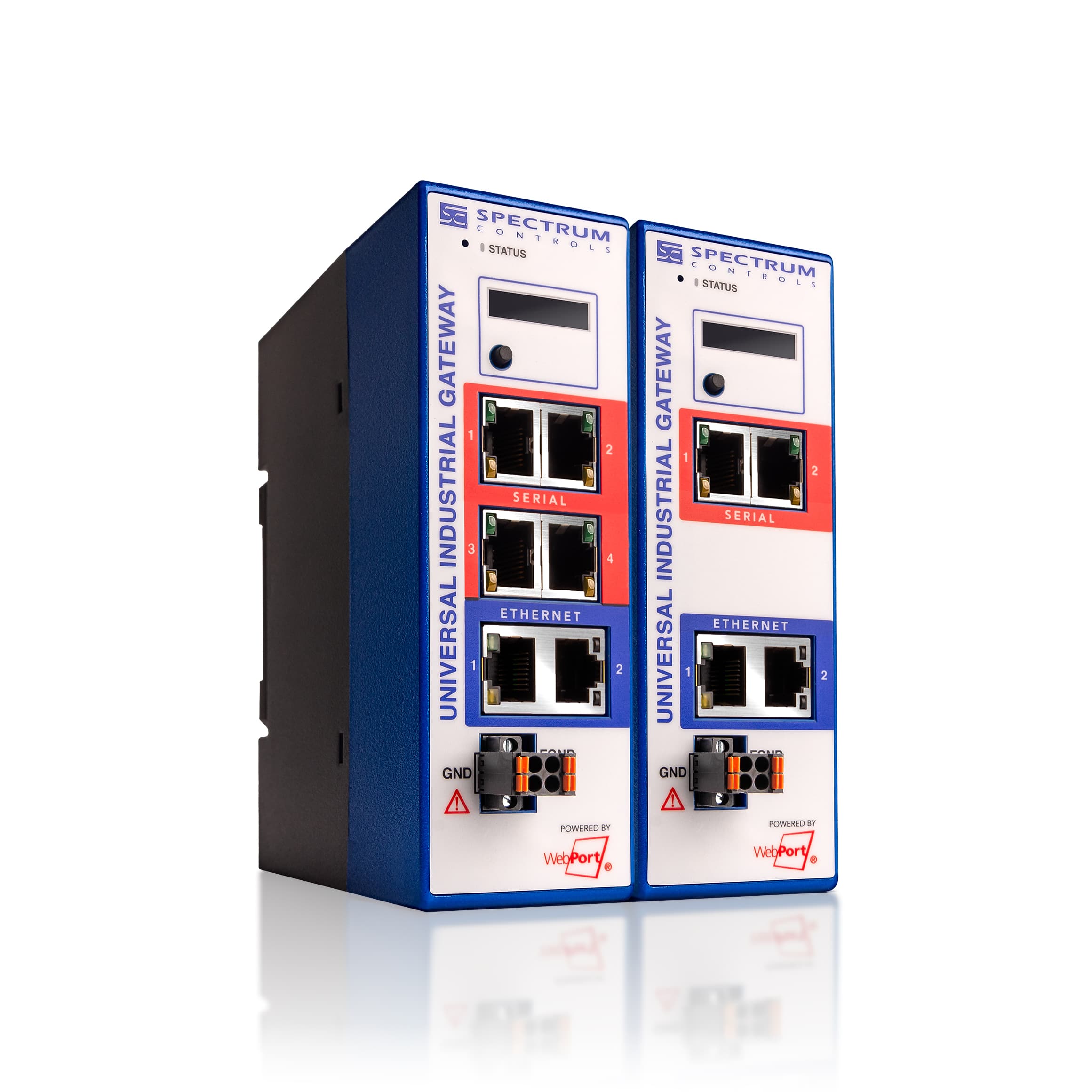
Digital Transformation in Industrial Automation
In today’s rapidly evolving automation landscape, the transition towards smart factories is both a goal and a challenge, driven by an ever-growing demand for data accessibility. This journey is complicated by the prevalence of mixed-protocol environments, featuring both serial and Ethernet communications, each with its own set of variations and complexities. Many of these communication challenges can be solved with an industrial protocol gateway.
What is an Industrial Protocol Gateway?
An industrial protocol gateway is a device designed to facilitate communication between different industrial networks and devices that utilize disparate communication protocols. These gateways act as translators, converting data from one protocol to another, thereby enabling seamless interaction between various equipment and systems. This interoperability is crucial for modern industrial environments where equipment from various manufacturers and generations need to work together without issues. By facilitating data exchange across these systems, gateways contribute to creating a cohesive and efficient automation ecosystem.
What Other Benefits Does a Communication Gateway Provide?
Interoperability
Industrial protocol gateways break down barriers between devices that utilize different communication protocols, enabling them to interact seamlessly. This interoperability ensures that equipment from various manufacturers and generations can work together without compatibility issues.
Scalability and Flexibility
With gateways, expanding or modifying an industrial network becomes much more manageable. They allow for the easy integration of new devices and technologies without the need for extensive rewiring or system overhaul. This flexibility ensures that industrial systems can evolve over time, adopting new capabilities and adapting to changing operational requirements without significant disruptions or costs.
Improved Data Management and Accessibility
Gateways can consolidate data from multiple sources into a uniform format, simplifying data management tasks. This data harmonization is essential for effective monitoring, analysis, and decision-making processes. Additionally, remote access gateways enable engineers and technicians to access PLCs and other devices from distant locations, enhancing maintenance capabilities and reducing downtime through timely diagnostics and interventions.
Enhanced Security
Industrial protocol gateways can also enhance the security of industrial networks. By segmenting networks and managing the flow of data between different segments, gateways can help protect sensitive information and critical systems from unauthorized access and cyber threats.
Cost Efficiency
Implementing a communication gateway can be more cost-effective than replacing legacy systems or conducting extensive rewiring. By allowing existing equipment to communicate with new systems, gateways extend the life of older devices and reduce the need for costly upgrades.
Common Communication Protocols
DF1: Developed by Allen-Bradley, DF1 is a serial communication protocol that operates over RS-232 or RS-485 and typically used for point-to-point communication. It is widely utilized in industrial automation systems for its simplicity and reliability.
Modbus RTU: Known for its simplicity, Modbus RTU is a serial communication protocol, transmitted in a binary format over RS-232 or RS-485 communication lines. It is one of the most commonly used protocols in industrial automation due to its ease of implementation and robust performance.
Modbus TCP: An adaptation of the Modbus protocol that operates over Ethernet networks and leverages the TCP/IP protocol suite for higher-speed communications and scalability. Modbus TCP allows for more complex and larger-scale network configurations compared to its serial counterpart.
EtherNet/IP: Similar to Modbus TCP, EtherNet/IP operates over Ethernet networks, leveraging TCP/IP for communication, but is built upon the Common Industrial Protocol (CIP) which offers greater scalability, real-time communication and device flexibility. EtherNet/IP is known for its robustness and is widely adopted in various industrial applications.
By understanding and utilizing industrial protocol gateways, you can overcome the challenges of mixed-protocol environments, ensuring seamless communication, improved data management, and overall enhanced efficiency in industrial automation systems.


